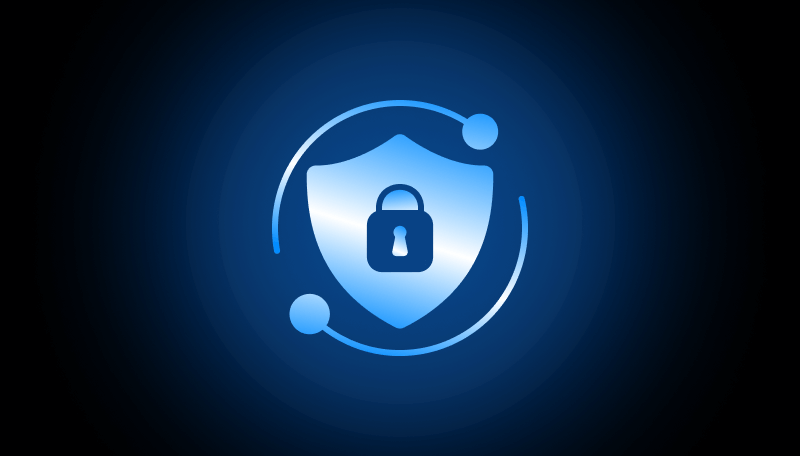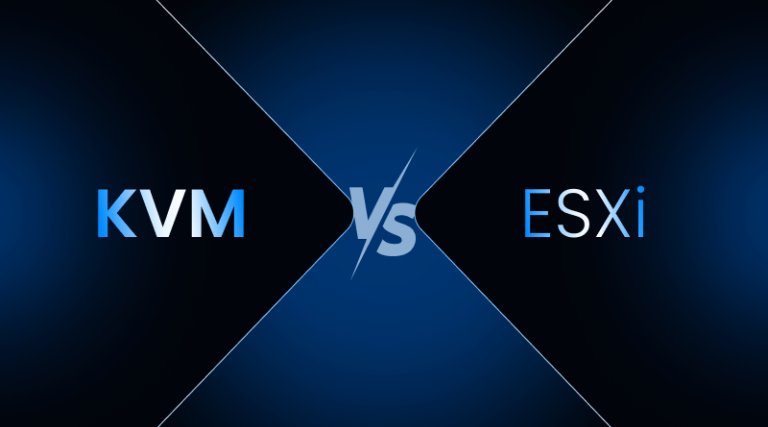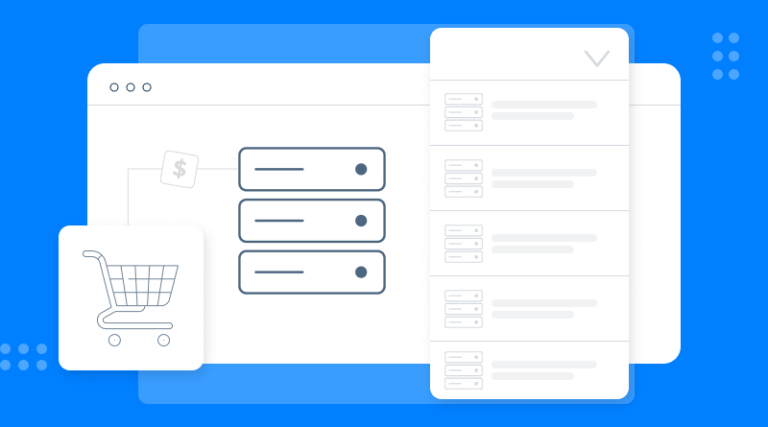What if I say you lose your personal information every day in small chunks? Let’s understand this with a simple example. Think of your business as a busy store. A thief comes in and steals a small box of inventory. Now, picture every store on the planet going through the same thing and the lost revenue associated with the theft. That’s a glimpse into the reality of cybercrime. By the end of the year, the global cost is projected to hit a staggering $10.5 trillion—more than the GDP of entire nations. The question isn’t if you can afford to invest in cybersecurity, but can you afford not to?
These staggering numbers are not just a concern for the Fortune 500 companies; it is a global problem that affects companies of every size. However, it often affects the most vulnerable businesses.
Many view cybersecurity solely as an IT cost, but it’s actually a powerful investment in business survival, customer loyalty, and future profits. No matter if you are hosting a small website or a large e-commerce venture, a reliable web hosting service requires strong cybersecurity. In this guide, we outline the most critical reasons that a robust cybersecurity strategy is no longer optional but the business’s most important line of defense.
Table Of Content
The Modern CyberSecurity Threat Landscape
Today, cybersecurity is an absolute necessity. Every business, regardless of its size, has to tackle an ever-evolving threat landscape where the attacks are relentless, increasingly sophisticated, and more damaging than ever. Cybersecurity today is critical because of the sheer volume of threats like ransomware, data breaches, and social engineering breaches. Cybercriminals also target small businesses, despite their perceived ease of access. Cybercriminals exploit the vulnerabilities of all types of organizations.
Cloud services, remote work, IoT devices, and third-party integrations have all added to the scope of the digital world, increasing the importance of cybersecurity. As the world becomes more interconnected, a single weak link has the potential to expose entire networks. Cybersecurity threats are becoming more sophisticated. We now have AI-driven malware and phishing campaigns that mimic legitimate communications. This continuously changing landscape has made cybersecurity more crucial, which is why businesses of all sizes must have proactive measures to defend their operations and data and also protect their customers’ trust.
Related Read: Cybersecurity Checklist For New Business Owners
Cybersecurity Stats
Cybersecurity threats are increasing quickly, and these statistics show the real extent of the risks businesses face today. Here are key figures every organization should know.
| Stats Point | Relevance |
| 43% of cyberattacks target small businesses (Verizon DBIR) | Many small businesses wrongly assume they’re “too small” to be attacked. Hackers target them because they often lack strong defenses. |
| Average cost of a data breach in 2024 is $4.45M (IBM) | Demonstrates the huge financial risk of ignoring cybersecurity. Investing in protection is cheaper than recovery. |
| Ransomware attacks happen every 11 seconds (Cybersecurity Ventures) | Shows the frequency and urgency of ransomware threats, making proactive defense essential. |
| 94% of malware is delivered via email (Verizon DBIR) | Highlights the need for phishing awareness training and secure email solutions. |
| 60% of SMBs shut down within 6 months of a cyberattack (National Cyber Security Alliance) | Reinforces why business continuity planning and backups are critical. |
| 68% of business leaders feel their risk of a cyberattack is increasing (Accenture) | Shows rising awareness of cybersecurity threats at leadership levels. |
| 82% of breaches involve human error (IBM Security) | Emphasizes employee training and zero-trust approaches. |
| Only 5% of company folders are properly protected (Varonis) | Stresses the importance of access management and data encryption. |
Safeguarding Your Most Valuable Assets
In an interconnected and rapidly evolving digital landscape, businesses must protect their ideas, data, and finances. To achieve this, businesses must earn trust from their customers and partners, making data security the cornerstone of trust. Many decision-makers have a misguided belief that traditional security measures are more than enough to protect sensitive data. The importance of the lingering threats to critical cybersecurity assets, however, has become ever more apparent.
A single breach of customer data can greatly harm your business, considering it is one of the most important assets your company possesses. This is why spending on cybersecurity is so important. It has a direct relationship to the defense of your company, the compliance with security regulations, and the reputation your business has among clients.
The protection of trade secrets and product designs that your company holds has a direct relationship to spending on cybersecurity for your business. It is non-negotiable considering that proprietary information is a target for competitors as well as cybercriminals.
Payment systems and financial data are equally crucial for any company, and considering the sheer volume of attacks where information is stolen and systems are held to ransom, security is one area that results in uninterrupted business operations. Payment systems are super vulnerable, and if attackers compromise your systems and gain control of your data, they can bring your business to a halt, destroying it in the process. Businesses that have tight controls on data security are viewed positively, and those that lose data suffer an instant drop in reputation and customer trust.
Spam emails, phishing, and other cybercrimes with the intent to breach privacy have become a common practice. For businesses, these acts pose a challenge, as they can cause a business to incur hefty fines for losing data privacy and not complying with set regulations. For new and even young businesses, the challenge of limited downsides and a lot of legal hindrances can pose a challenge to expansion.
Why Invest in Cyber Security: The Cost of Inaction
When considering the question of whether Cybersecurity is good or bad, most businesses would respond through a cost-benefit analysis. On one side, the cost would be implementing prevention measures such as security software, an adequately trained cybersecurity staff, and constant surveillance. On the opposite end, the staggering cost of negligence breaches that result in inaction would be regulatory fines, lawsuits, loss of data, and damage to reputation.
Trust is one of the most expensive and critical assets a business possesses. Companies that choose to ignore or delay implementing safeguards usually have good or bad cybersecurity. They ultimately realize that a strong Cybersecurity posture is a critical business enabler.
Cybersecurity is not a one-time cost. A single ransomware attack can cripple operations. Also, numerous phishing schemes can end up exposing very sensitive client data, resulting in expensive lawsuits and lost partnerships.
The data most businesses would track, prevention is much cheaper than recovery. The debate over whether cybersecurity is good or bad proves that businesses would benefit greatly from proactive investment.
Why Cybersecurity Matters: A Multi-Layered Approach
While thinking about Cybersecurity, businesses are prompted to consider multiple lines of defense, as opposed to one singular tool. A comprehensive strategy includes proactive protection as well as safety nets. A good example of this is Acronis Cloud Backup, which serves as a final backup, recovering data as needed. In tandem, Website Server Monitoring gives real-time insights to detect and prevent activities that could compromise security. At the lowest layer, SSL Certificates protect customer trust by maintaining encrypted connections and safeguarding data during transmission.
With these defenses integrated, businesses are equipped to withstand evolving threats. This layered strategy decisively answers Cybersecurity why. It is about protecting every gap and ensuring the business can operate without interruptions while preserving the trust of its public interface.
The reasoning does not end with firewalls or mandatory compliant software features. It illustrates how a company protects its customers’ data, privacy, and trust. A company that understands why Cybersecurity matters shows with action that it not only protects its operations but also secures its systems, making it a reliable partner. The strongest proposition for why Cybersecurity matters is the business loyalty and assurance that follows.
Web Hosting & Cybersecurity
Web hosting is very important for cybersecurity. SSL encryption and server monitoring are key factors. Here’s how your hosting choices affect your website’s safety and trustworthiness.
| Web Hosting Factor | Cybersecurity Relevance | Best Practices |
| Server Uptime & Reliability | Downtime after cyberattacks can damage trust and revenue. | Choose hosts with 99.95%+ uptime and DDoS protection. |
| SSL Certificates | Encrypts data between the website and users, preventing theft. | Always enable SSL (Let’s Encrypt or premium SSL). |
| Malware Scanning & Firewalls | Detect and block malicious activity before it spreads. | Use hosts offering WAF (Web Application Firewall). |
| Data Backups | Protects against ransomware and accidental loss. | Go for daily/automated backups with quick restore options. |
| Server Monitoring | Identifies unusual activity like brute-force logins or spikes. | Continuous monitoring tools help in early detection. |
| Multi-Layered Security | A single measure (like SSL) isn’t enough. Needs a layered defense. | Combine SSL, WAF, backups, and monitoring. |
| Customer Trust | Secure hosting improves brand credibility. | Display security badges and SSL lock icons on websites. |
| Compliance (GDPR, HIPAA, PCI-DSS) | Many industries require data security compliance. | Hosting with compliance support saves legal headaches. |
In today’s world of high-stakes digital interactions, cybersecurity is crucial, not optional. There is a business case for action in addressing a modern threat, protecting critical business assets, and evaluating the financial impacts of inaction. Businesses sustain adaptability against evolving risks with a multi-layered strategy employing backups, monitoring, and encryption. The technical defenses in place ensure business continuity, while the unquantifiable risks of losing customer trust are of higher value.
Ultimately, cybersecurity is not a single expenditure; in a digital-first world, a business’s integrity, reputation, and customer relations necessitate a continuous, enduring investment.
FAQs
1. A business’s cybersecurity posture: how does it impact brand reputation and customer trust?
A robust cybersecurity posture assures customers that their sensitive personally identifiable information and financial data will not be compromised, building brand equity. This transparency pillar enhances brand resonance and strengthens customer trust; thus, security becomes a competitive business advantage.
2. Can investing in cybersecurity reduce the cost of a data breach if one occurs?
Definitely. Businesses enforce preventive measures and significantly lessen the breach’s impact. This, in turn, results in reduced legal penalties, downtime, recovery costs, and rollback expenses, ultimately lowering the overall financial damage.
3. Does investing in cybersecurity help with regulatory compliance (e.g., GDPR, HIPAA)?
Certainly. Investing in cybersecurity aligns with GDPR, HIPAA, or PCI-DSS requirements. Compliance safeguards a company from hefty fines and reinforces the organization’s dedication to securing sensitive information.
4. What are the long-term consequences of a cyberattack beyond the initial financial loss?
In addition to the immediate financial impact, cyberattacks compromise customer trust, harm the brand, and lead to persistent operational challenges. Businesses may incur unending litigation, and the road to reclaiming market trust can take years.














